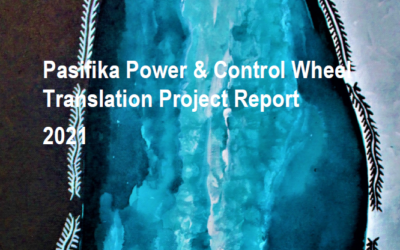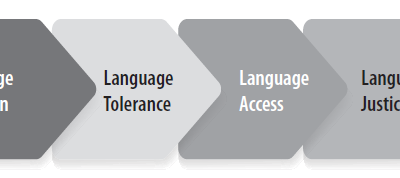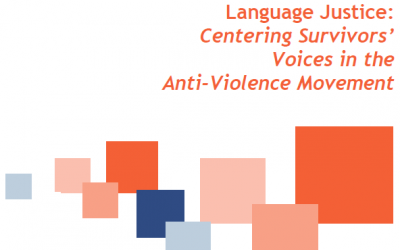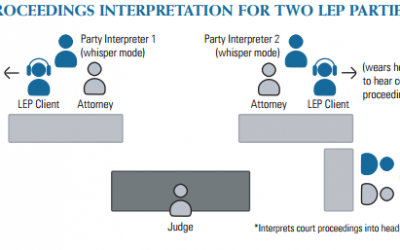Related Resources
Zoom Interpreting and Closed Captioning Guide for Service Providers, 2022
Tips and resources on Zoom interpreting and closed captioning for service providers.
Pasifika Power & Control Wheel Translation Project, 2021
This project aimed to translate and develop educational resources and tools on GBV in indigenous Pasifika languages. The project aims to empower individuals, families, community-based and system responders, allied professionals, and the community-at-large with culturally responsive resources to address and prevent GBV in Pasifika communities. Resources include project report and glossaries and tools for Samoan, Chuukese, and Native Hawaiian communities.
Language Justice Principles for Everyday Practice and During COVID-19
What is language justice, what are tips for lawyers to practice it, and why is this especially important during the COVID-19 pandemic? This article answers these commonly asked questions and more.
Language Justice in Legal Services, 2019
Published by Management Information Exchange Journal
This article positions language justice as a critical
part of effective and inclusive legal services, and introduces a framework for assessing and strengthening practices for servicing individuals who do not communicate in English as their dominant language.
From Language Access to Language Justice: Centering Survivors’ Voices in the Anti-Violence Movement, 2019
A Language Justice approach allows agencies to engage diverse organizations, local communities, stakeholders, and victims/survivors in anti-violence initiatives, placing everyone on equal footing through interpretation, translation, and other strategies for equal communication
Survivors with Limited English Proficiency: Barriers to Access
Limited English proficiency not only affects survivors’ ability to get help, but also employment, housing, benefits, health and mental health care, and to advocate for social and educational services for their children – factors compounding the vulnerability of, and the discrimination survivors face; more so for those contemplating leaving.
Resource Guide for Advocates & Attorneys on Interpretation Services for Domestic Violence Victims, 2016
Information, tips, tools, and resources for ensuring language access in service agencies.
Language Access Policy Template, 2016
Use this template to create a language access plan for your agency.
OTHER LANGUAGE ACCESS TIPSHEETS:
- Considerations When Using Interpreters for Victims with Limited English Proficiency
- Developing a Language Access Plan for Your Agency
- How to Address Problems with Interpretation
- Interpretation Services
- Serving Individuals Who are Deaf, Hard of Hearing, or Deaf-Blind and Do Not Use American Sign Language




